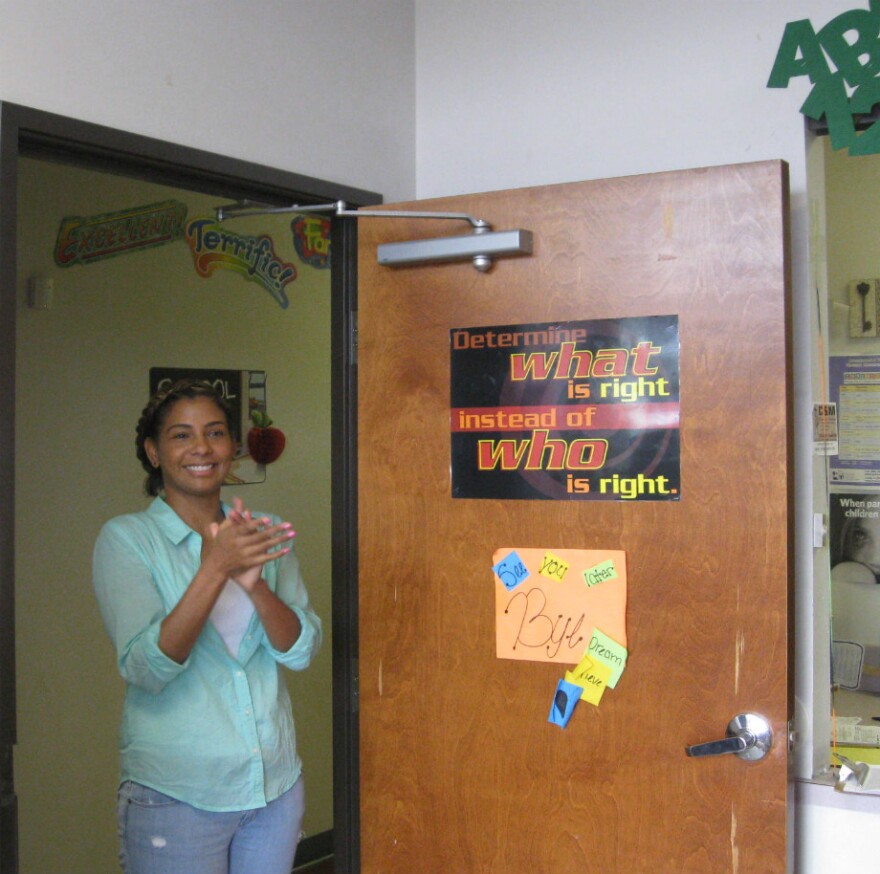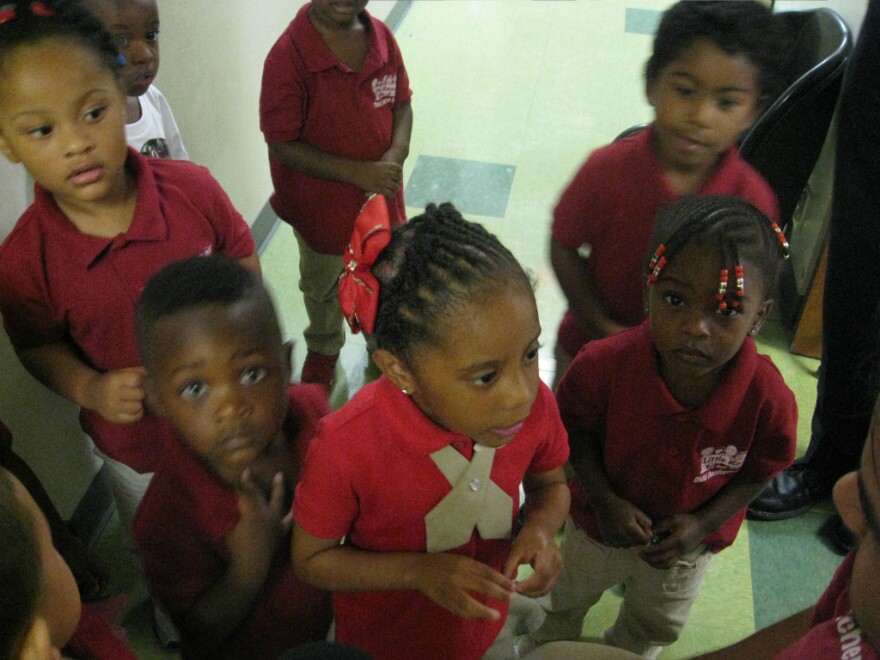Early education is a hot topic these days and it’s about to get hotter. Texas lawmakers cut some pre-Kindergarten funding in 2011. A paper out Tuesday examines how that’s affected school districts. Some of them valued pre-Kindergarten so much they sacrificed other programs to keep it.
Communities and school districts, even parents and politicians, are zeroing in on research that shows early intervention is key for kids. Forget kindergarten, even pre-K. A baby’s first months matter.
At Little Rascals Daycare in West Dallas, learning starts at a very early age. Director Chancee Smalley is working to up her game by pursuing accreditation. She wants parents to know this is more than a place to drop off your kid. Standards are high, and children are learning.
“All of your schools over here are failing,” Smalley says. “So you have Carr, you have Carver and they’re all failing when it comes to test scores. Pinkston High School is on the verge of being shut down. Edison. The parents’ expectations of children going to daycare centers is basically for them to be babysitting.”

Smalley’s on a mission. In this poor community, she realizes many parents work hard just to survive. Research says low income parents read far less to their kids than wealthier families. Also, poor children tend to hear millions fewer words, so their vocabulary’s limited. They’ll walk into kindergarten already behind.
“Right now, our goal is not only to help our kids, but to train our whole community to want more and want better," Smalley says.
At Little Rascals Daycare, some kids have been here since they were babies. Their teacher is Cris Moreno.
“What do we do with our nose?” Moreno asked his 3-year-olds. “We smell. What do we do with our ears? Listen. What do we do with our mouth? Taste. What do we do with our eyes. See. So what are they called? SENSES! Good job!”

These kids are getting ready for pre-K, where they’ll build on the foundation of language, complex thinking, and processing sound and images. Texas helps fund half day pre-K, and since 1999 offered grants for full-day. That funding got cut three years ago, causing issues for districts, says Bob Sanborn. He runs Children At Risk. The group’s study looks at what districts did.
“What we found, here’s one of the few evidence-based programs of research of education that really has a significantly positive impact on education outcomes, the whole day pre-K, and that basically disappeared,” Sanborn said.
Here’s what surprised him. So many districts, including Fort Worth and Dallas, valued full-day pre-K enough that they kept funding it despite the cuts. They siphoned money from elsewhere in their budgets. Some even maintained pre-K staffing levels to keep the low student-teacher ratio. But many districts didn’t.
“We still found a number of districts that were not doing full-day," Sanborn said. "They said 'if we had funding we would do full-day because it’s so important.'”

Sanborn’s hoping, in this political season, that lawmakers of any party get the message that pre-K -- even birth to age three education -- is so essential, it’s worth funding.
“You either pay me now or pay me later,” Sanborn says. “We know that when you do pre-K, you’re less likely to drop out of high school, you’re more likely to graduate, you’re more likely to read at grade level.”
Sanborn’s feeling optimistic, in part because of the convincing evidence, and he says, because both conservatives and liberals believe in pre-K education.




